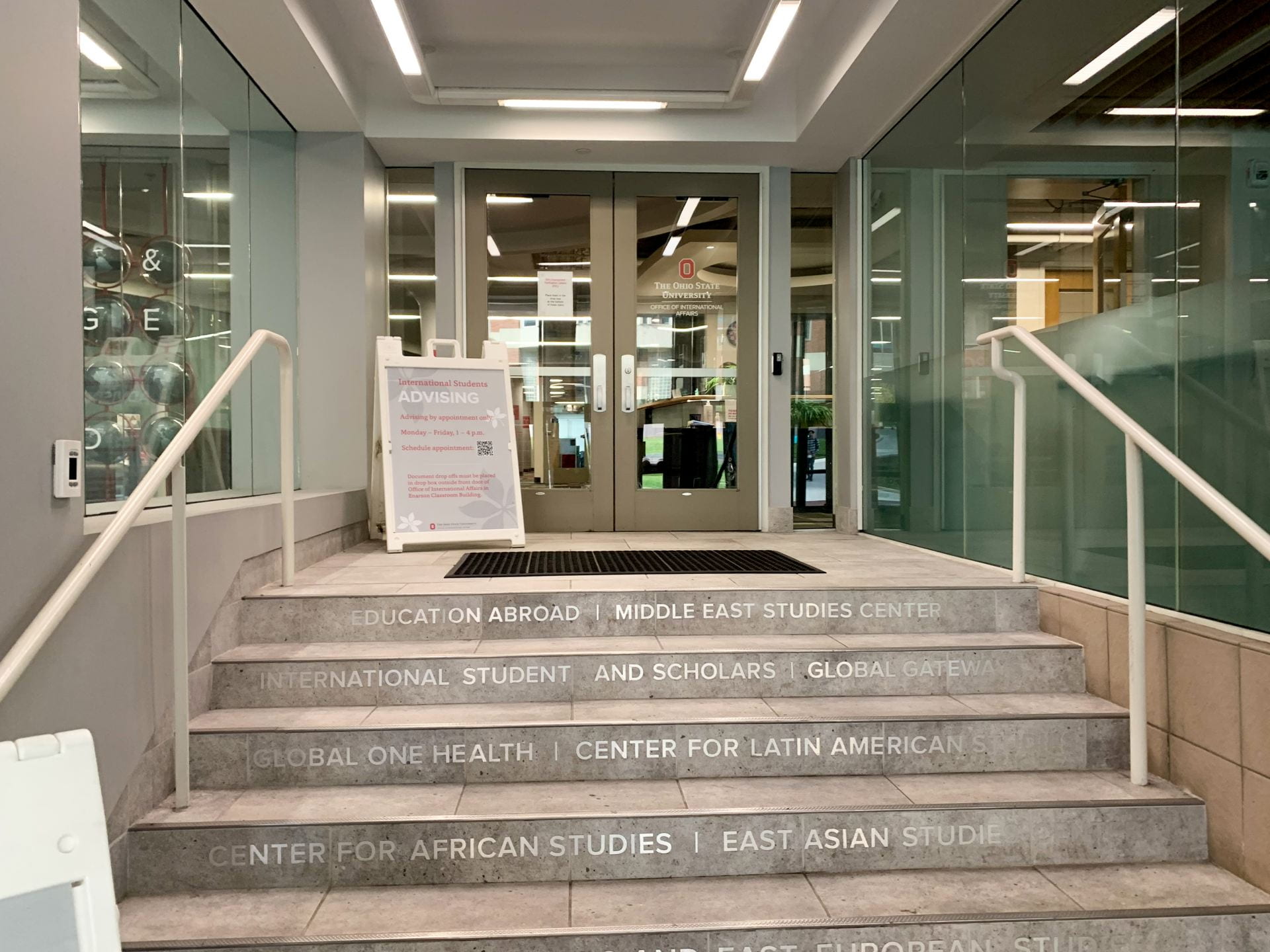
After more than a year of cancellations due to COVID-19, study abroad programs at Ohio State have started back up slowly with a small number of students beginning their travels around the world. Credit: Shree Luitel | Lantern Reporter
As COVID-19 spread in spring 2020, Ohio State canceled its study abroad programs. Even after over a year, a small number of students have been sent around the world and are still restricted due to the pandemic.
According to the Office of International Affairs’ annual report on education abroad, nearly 90 percent of the over 1,600 students who were registered to study abroad in 2020 had their programs canceled.
For the students whose programs were canceled, over 1,300 received no credit, 39 received alternative credit and 31 transferred their application to another term.
According to the report, 145 summer programs were canceled and 47 programs total had to return early in 2020 due to the pandemic.
April Weintritt, senior lecturer in Italian and assistant director of the Italian language program, said some of her students were forced to return to the U.S. in early 2020. Due to the way application cycles were structured, many students had their applications pushed back for a different semester.
“Students thought they could go in the summer or the fall, and they couldn’t,” Weintritt said. “It has been a series of disappointments instead of just one big year.”
Jeannie Simmons, Office of International Affairs Global Education director, said the lingering effects of the pandemic have forced coordinators to change itineraries, and students do not have as much of their previous traveling freedom.
“For now, when the pandemic is still very much a factor, it is impacting program itineraries — they are simpler, and they are more conservative,” Simmons said. “Students are less likely to be able to travel as much after a semester program, and there may be places where they can’t go.”
Simmons said along with program changes, the international travel policy board and university leadership are tasked with determining if study abroad programs can be open for the fall and spring semesters, and there are various factors that affect these decisions.
“There is a lot of fluidity of testing requirements, mandates that change, and keeping up with that is a priority,” Simmons said.
Simmons said the interest in the study abroad programs has been strong with high attendance at information sessions and students booking advising appointments to plan ahead.
“The impact that studying abroad has on students is almost immeasurable, from getting cross cultural competencies, building confidence and getting exposure to another way of life,” Simmons said.
Alex Misick, a second-year in anthropology, said she wants to study abroad and looks forward to the experiences.
“I am looking forward to meeting new people, experiencing a new place and most of all, I’m excited to meet people in my major from all over the world and share those experiences with them,” Misick said.
According to the Office of International Affairs website, decisions for spring semester-length programs have already been made, with some programs being approved. A limited number of programs in the following countries have been approved for the spring semester: the Czech Republic, Denmark, Ecuador, France, Germany, Ireland, Italy, South Korea, Spain and the United Kingdom.
According to the Office of International Affairs website, the dates for program viability decisions are as follows:
May session faculty-led programs: Jan. 31, 2022.
Late summer faculty-led programs: Feb. 28, 2022.
Third-party providers, direct enrollment and international exchange programs: March 14, 2022.


